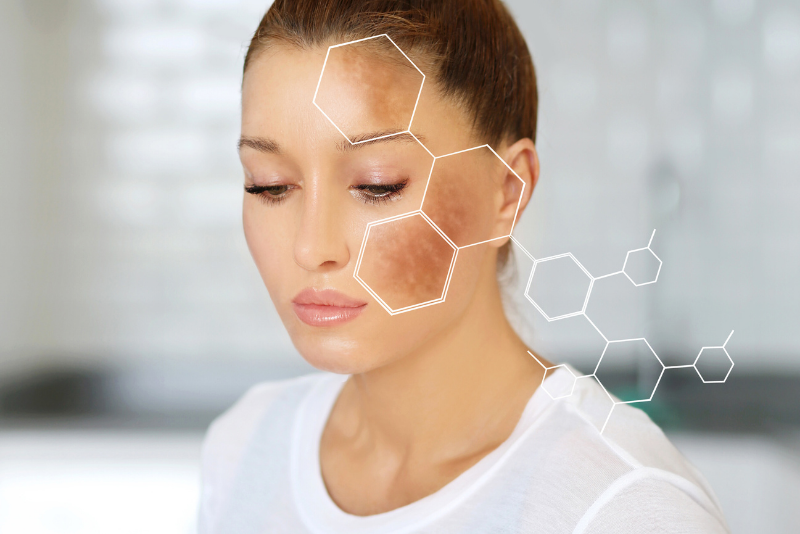Melasma Doctors in Georgia
Leading Melasma Specialist
Expert Melasma Treatment
Melasma is a common skin condition characterized by brown or gray-brown patches that usually appear on the forehead, cheeks, upper lip, nose, and chin. It is more prevalent in women and often develops during hormonal changes, such as those occurring during pregnancy or when starting birth control. Sun exposure is a significant trigger that increases the likelihood of developing these pigment changes.
Melasma is not a precancerous condition; it is harmless and results from excess pigment that manifests as brown or gray-brown patches, primarily on the face. The condition is typically triggered by sun exposure, hormonal changes, or skin irritation and does not lead to skin cancer. Unlike precancerous spots, melasma is purely a cosmetic concern. However, many individuals opt for treatment for aesthetic reasons or personal comfort.
If you notice any new changes or dark spots, it is important to come in for a skin check regardless.

How Can You Prevent and Protect Against Melasma?
Proper sun protection is a critical foundation in preventing melasma from worsening and in helping treatments maintain their effectiveness. Consistent use of broad-spectrum sunscreen, wearing wide-brimmed hats or other sun-covering clothing, and avoiding direct sunlight during peak hours every day is essential to both prevent darkening and support long-term results.

What Treatments Improve Melasma and How Do They Work?
Topical products containing depigmenting agents, such as hydroquinone, help fade melasma by reducing melanin production. Tretinoin, a retinoid, encourages skin cell turnover to help fade pigment more quickly and evenly. These options are often combined to enhance results.
What In-Office Melasma Treatments Are Available?
In addition to skincare products, Georgia Skin Cancer & Aesthetic Dermatology offers several in-office treatments to address melasma more aggressively yet safely. Chemical peels gently remove the outer layers of skin to reveal brighter skin, while microdermabrasion mechanically exfoliates to reduce pigmented buildup. Laser Genesis, a non-invasive laser treatment, stimulates collagen, targets pigmentation, and can improve melasma when used in multiple sessions. Most patients see significant improvement with a series of about four to six treatments.
Why Choose a Dermatologist for Melasma Treatment?
Melasma can be stubborn and sensitive to many factors, from hormonal shifts to sun exposure, so personalized care is essential. A specialist can tailor a treatment plan that combines topical regimens with professional procedures, while monitoring the skin’s response. Because melasma can flare or return, ongoing guidance ensures improvements last longer and adjustments are made as needed. At Georgia Skin Cancer & Aesthetic Dermatology, our team combines experience with individualized care to help you manage melasma effectively.
Who Is the Ideal Candidate for Melasma Treatment?
Ideal candidates are those looking to reduce dark facial patches without invasive surgery. Many patients find that tailored combinations of topical therapies and in-office treatments provide gradual yet noticeable improvement. Whether you’re seeking to brighten the skin on your cheeks, forehead, or upper lip, a customized plan devised during a consultation can set expectations and outline a clear path toward smoother, more even skin.
Schedule Your Consultation With Georgia Skin Cancer & Aesthetic Dermatology
If you’re ready to explore melasma treatment in northeast Georgia, reaching out is easy. Patients in Athens, Gainesville, and surrounding locations can connect by phone or use the online booking system to schedule an appointment. During your consultation, your provider will assess your condition, discuss treatment options such as topical agents, chemical peels, microdermabrasion, or Laser Genesis, and craft a plan designed specifically for your skin goals.
